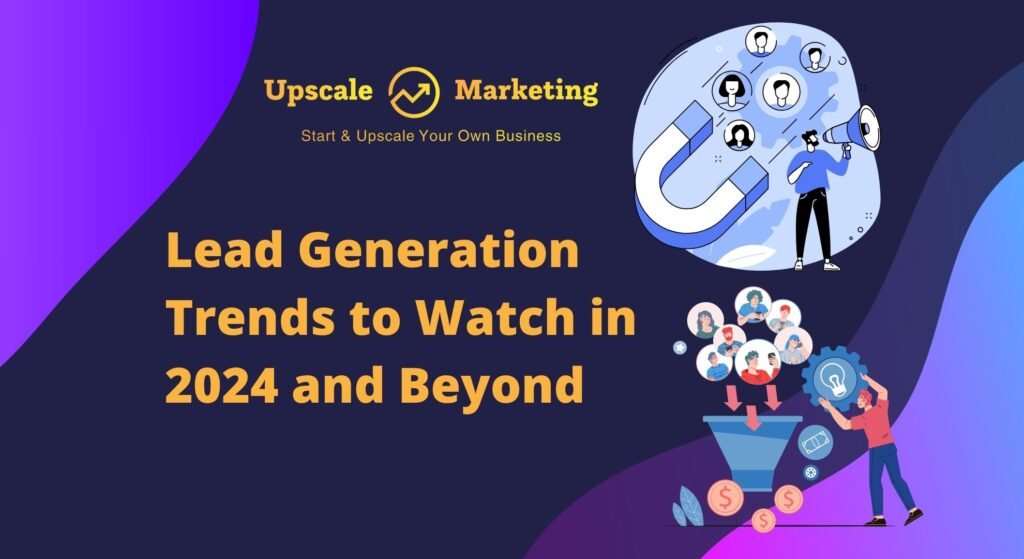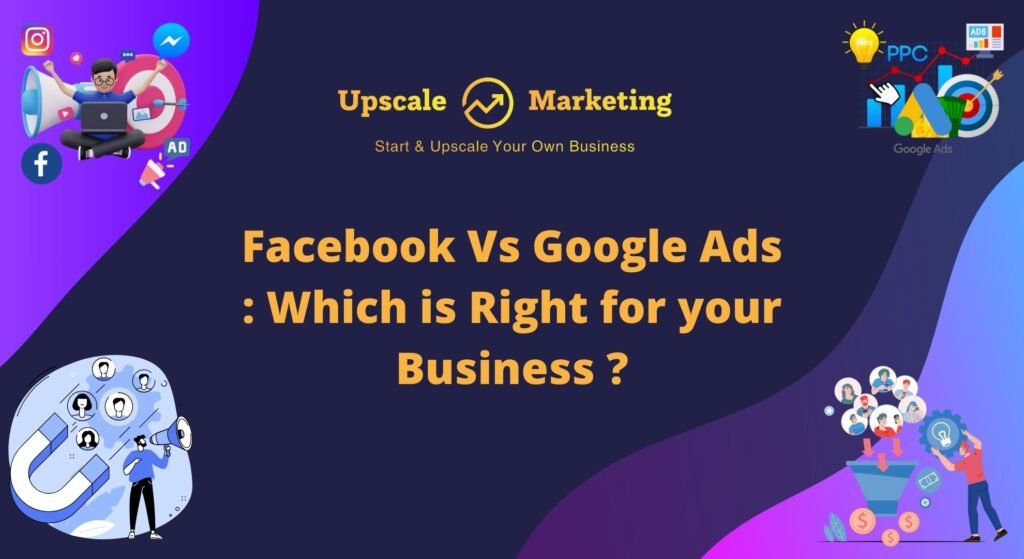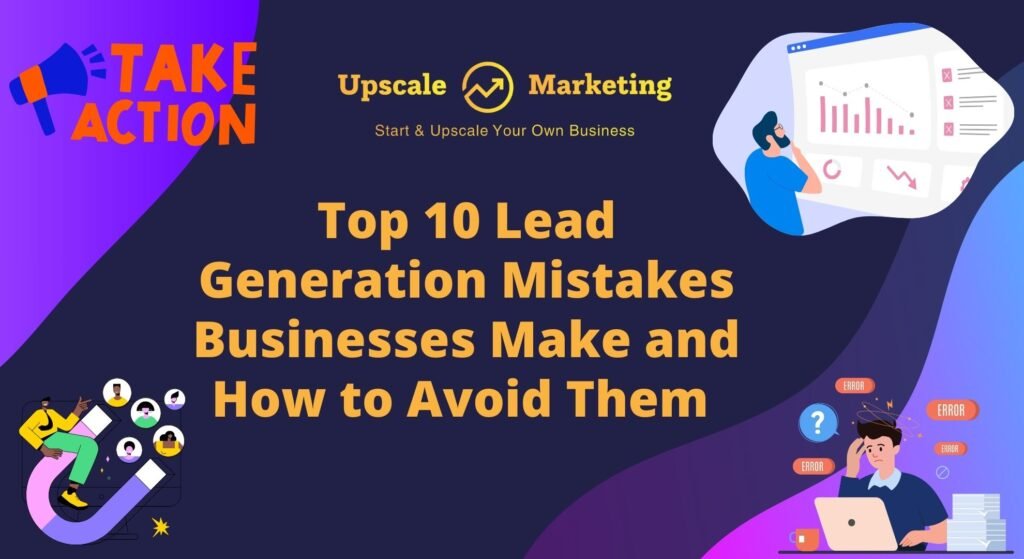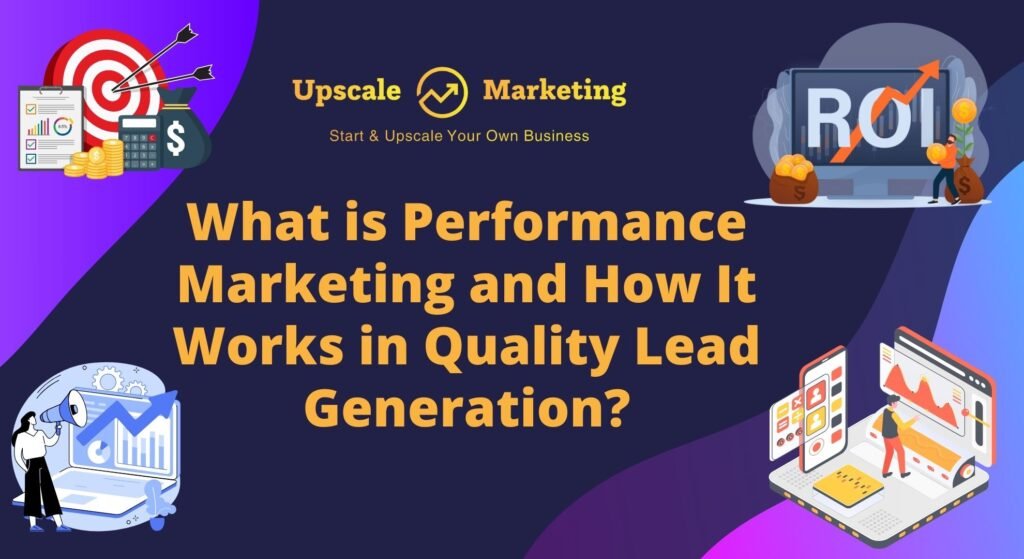In the fast-paced world of digital marketing, lead generation strategies must evolve to stay ahead of the competition. As we look towards 2024 and beyond, several emerging trends and technologies are poised to reshape the future of lead generation.
The landscape of lead generation is constantly evolving. As consumer behavior shifts and technology advances, businesses need to adapt their strategies to stay ahead of the curve.
In this comprehensive blog, we will explore 10 key trends that businesses need to watch and integrate into their marketing strategies, along with a detailed analysis of five popular lead-generation advertising platforms, including their pros and cons. We’ll also provide examples of lead generation in the real estate sector to illustrate these trends in action.
10 Trends Shaping the Future of Lead Generation
1. Account-Based Marketing (ABM) Takes Centre Stage:
ABM focuses on targeting a defined set of high-value accounts. This laser-focused approach allows for personalized outreach and messaging, leading to higher conversion rates. In real estate, ABM can be used to target specific types of buyers, such as corporations looking for office space or families seeking a new home in a particular school district.
2. Intent-Based Lead Generation Gets Real:
Intent-based marketing allows you to identify potential customers who are actively researching solutions related to your offerings. This is achieved by analyzing online behavior, such as website visits, search queries, and social media engagement. Real estate agents can leverage intent-based platforms to target individuals searching for properties in specific locations or with certain features.
3. The Rise of Conversational Marketing:
Conversational marketing utilizes chatbots, live chat functionalities, and messaging apps to engage leads in real-time conversations. This personalized approach allows for immediate qualification and fosters stronger relationships. Real estate firms can leverage chatbots to answer basic questions about listings, schedule appointments, and qualify leads based on their needs.
4. The Power of Personalization:
Personalization is no longer a fad; it’s a necessity. Today’s consumers expect tailored experiences, and lead generation is no exception. By leveraging data and customer insights, businesses can personalize content, offers, and communication to resonate with individual leads. In real estate, this could involve sending property recommendations based on a buyer’s search history or budget.
5. Marketing Automation Streamlines Lead Nurturing:
Marketing automation tools can automate repetitive tasks such as email nurturing campaigns, lead scoring, and appointment scheduling. This frees up valuable time for sales teams to focus on closing deals. Real estate agents can leverage marketing automation to send targeted email campaigns based on a lead’s interests, such as highlighting new listings in their preferred area.
6. The Integration of Artificial Intelligence (AI):
AI is rapidly transforming lead generation by providing valuable insights into customer behavior and preferences. AI-powered tools can analyze data to identify high-potential leads, predict customer needs, and even personalize content creation. Real estate companies can utilize AI to personalize property recommendations or generate automated property descriptions based on data analysis.
7. The Growing Importance of Video Marketing:
Video is a powerful tool for capturing attention, conveying information, and engaging leads. From virtual tours to explainer videos about the home buying process, video marketing can be a valuable asset in real estate lead generation. Realtors can create video content showcasing properties, highlighting local amenities, and sharing neighborhood insights.
8. The Power of User-Generated Content (UGC):
UGC, such as customer testimonials, social media reviews, and case studies, can significantly enhance brand credibility and trust. Real estate agents can encourage satisfied clients to leave reviews online or share their positive experiences on social media.
9. The Evolving Role of Social Media Marketing:
Social media platforms continue to be a powerful tool for lead generation. By creating engaging content, running targeted ad campaigns, and actively participating in relevant online communities, real estate agents can connect with potential buyers and sellers.
10. Focus on Building Relationships, Not Just Generating Leads:
The best lead generation strategies go beyond simply capturing contact information. In today’s market, it’s crucial to build genuine relationships with potential customers. By providing valuable content, offering helpful advice, and fostering trust, real estate professionals can nurture leads and convert them into loyal clients.
Upscale Marketing recommends these Top 5 Lead Generation Advertising Platforms for Real Estate Business
In the competitive real estate market, effective lead generation is crucial for success. Leveraging the right advertising platforms can make a significant difference in attracting and converting potential buyers. Here, we delve into the top five lead generation advertising platforms, highlighting their features, pros, and cons in the context of the real estate business.
1. Google Ads
Google Ads is a robust platform that allows businesses to display ads on Google’s search engine results pages (SERPs), YouTube, and other partner websites. For real estate, it provides an excellent way to reach potential buyers actively searching for properties.
Pros:
Wide Reach: Google’s extensive network ensures your ads reach a vast audience.
Targeted Advertising: Allows precise targeting based on keywords, location, demographics, and user behaviour, ensuring ads reach the right audience.
Measurable Results: Detailed analytics help track ad performance, conversions, and ROI, enabling continuous optimization.
Cons:
Cost: Competitive keywords in real estate can drive up costs, making it expensive.
Complexity: Requires expertise to manage effectively, particularly in creating and optimizing campaigns.
Ad Fatigue: High exposure can lead to ad fatigue, where users become desensitized to the ads.
A real estate agency can target keywords like “buy homes in [City]” or “luxury apartments for sale,” attracting users actively searching for these terms.
2. Facebook Ads
Facebook Ads offers targeted advertising through its extensive social media network, including Instagram. It’s particularly effective for engaging users with visually appealing content.
Pros:
Detailed Targeting: Capable of targeting users based on demographics, interests, behaviours, and location.
High Engagement: Visually rich ads tend to engage users effectively, especially with property images and videos.
Cost-Effective: Provides flexible budgeting options, making it accessible for businesses of all sizes.
Cons:
Privacy Concerns: Ongoing privacy issues can affect ad performance and user trust.
Ad Overload: Users might experience ad fatigue due to high competition.
Algorithm Changes: Frequent updates to Facebook’s algorithm can impact ad reach and effectiveness.
A real estate firm can create carousel ads showcasing different properties, targeting users who have shown interest in real estate or similar topics.
3. LinkedIn Ads
LinkedIn Ads is ideal for B2B lead generation, offering access to a professional audience. It’s particularly useful for commercial real estate and targeting corporate clients.
Pros:
Professional Audience: Reaches decision-makers and professionals, making it ideal for high-value transactions.
B2B Focus: Effective for business-related real estate services, such as commercial properties.
High-Quality Leads: Attracts leads with higher conversion potential due to the professional context.
Cons:
Cost: Generally, more expensive than other platforms.
Limited Audience: Smaller user base compared to other social media platforms.
Complexity: Requires a clear understanding of B2B marketing strategies.
A real estate company can target LinkedIn ads to executives looking for office spaces, using professional testimonials and detailed property information.
4. Instagram Ads
Meta Ads Integrated with Facebook Ads, Instagram Ads leverage the platform’s visual nature to engage younger audiences. It’s highly effective for showcasing real estate properties through photos and videos.
Pros:
Visual Appeal: High engagement through aesthetically pleasing and visually rich ads.
Youthful Audience: Popular among younger demographics, who are potential first-time home buyers.
Integration with Facebook: Seamless integration provides broader targeting options and analytics.
Cons:
Ad Fatigue: High competition can lead to users becoming overwhelmed with ads.
Cost: Depending on targeting and competition, costs can escalate.
Limited Text: Requires creativity to convey messages effectively within visual constraints.
A real estate agency can use Instagram Stories to provide virtual tours of properties, engaging potential buyers with immersive content.
5. YouTube Ads
YouTube Ads offer opportunities for lead generation through video content, including skippable, non-skippable, and bumper ads. It’s effective for showcasing property tours and client testimonials.
Pros:
High Engagement: Video content captivates viewers and retains their interest.
Extensive Reach: Access to a large audience through YouTube’s vast user base.
Variety of Formats: Options for different ad formats to suit various marketing goals.
Cons:
Cost: Video ads can be expensive, particularly for high-quality production.
Ad Avoidance: Users may skip ads, reducing engagement.
Production Costs: Requires investment in producing professional videos.
A real estate company can create detailed virtual tours and client testimonial videos, using YouTube Ads to reach potential buyers and build trust through engaging content.
Choosing the right advertising platform is crucial for successful lead generation in real estate. Google Ads, Facebook Ads, LinkedIn Ads, Instagram Ads, and YouTube Ads each offer unique advantages and challenges. By understanding these platforms’ strengths and weaknesses, real estate businesses can strategically leverage them to attract and convert high-quality leads, driving growth and success in a competitive market.
Conclusion
As we move into 2024 and beyond, the landscape of lead generation is set to be transformed by emerging trends and technologies. Marketing automation, AI, personalization, and other advancements will enable businesses to engage and convert leads more effectively. By staying ahead of these trends and leveraging the strengths of various advertising platforms, businesses can achieve remarkable growth and success in their lead-generation efforts.
For real estate companies, adopting these trends can lead to more targeted and effective marketing strategies. From AI-driven property recommendations to personalized email campaigns, the opportunities for generating high-quality leads are vast. By understanding the pros and cons of different advertising platforms, real estate firms can make informed decisions and optimize their lead generation strategies for maximum impact. As the digital marketing landscape continues to evolve, staying agile and innovative will be key to thriving in this competitive environment.



